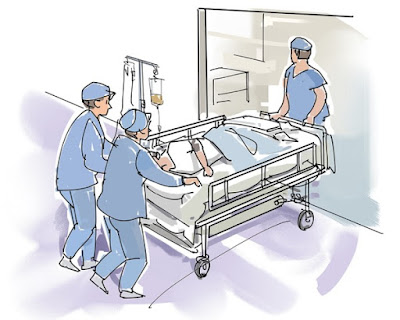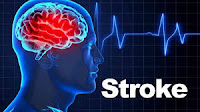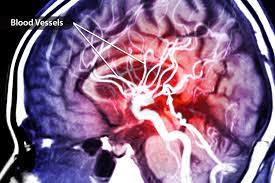I subscribe to everything related to health and stroke, and this article amazed even me, who rarely gets shocked anymore.
I was well and then I wasn't. In one second, my life changed forever. I type with only one, functional hand and am the author of "The Tales of a Stroke Patient," the true story behind my hemorrhagic stroke and its consequences, including gruesome health professionals, frightful depression, and near-death encounters. I'll take you on the journey in this blog I've written for over 10 years, but be prepared for a bumpy ride. Contact info: Joyce Hoffman / hcwriter@gmail.com
Apr 27, 2021
WTF! They're Living People, For Cryin' Out Loud: The Sad Saga of Futile Trauma Transfers
I subscribe to everything related to health and stroke, and this article amazed even me, who rarely gets shocked anymore.
Apr 14, 2021
Young Multiple-Stroke Patient Gives Parent PTSD
Count 'em, folks. F-I-V-E!
This post all started from an email I received anonymously:
I'm the parent/caretaker of a 9yrs old pediatric stroke survivor. I have been suffering from PTSD since his first event. He is now 14yrs, has had 5 strokes to date and I call him a'thriver'. But I just never know when...the...next...might come? My son's condition will not 'get better' or just 'go away'. He will never 'get over it' and as a result, I've had to put my constant fear in my pocket and just keep going. I'd like to know more about studies done on 'parents' of pediatric stroke survivors and how common the PTSD experience is within this group.
That being said, you are not alone. Pediatric cancer, tumors, severe injuries,Type 1 diabetes, epilepsy, or other neurological disorders can cause post-traumatic stress. Symptoms may include:reliving the experience, avoiding remindersof the event or condition, feeling numb or detached from others, anxiety, difficulty concentrating and being constantly on the lookout for danger.
Most Notable: Riley Children's Health from ndiana University Health says an estimated 10-20% of parents with medically fragile children meet the clinical criteria for PTSD.
The triggers may be different, but the results can include hypervigilance, withdrawal, anger and guilt.
From the National Institutes of Health: "Despite evidence suggesting that rates of PTSD in parents decline over time, a significant proportion of parents continue to suffer clinically significant levels of distress in the long-term.
"It remains difficult to characterise the trajectory of parent distress over time for a number of reasons. Past research has mainly examined a single illness group, and many studies use different scoring tools and methods, making it difficult to determine trajectories over time, the predictors of functioning at different phases of the model, and whether illness factors or the type of illness contributes to different outcomes."
The Take a Breath Cohort Study from the Royal Children’s Hospital, Melbourne, Australia, is underway to determine how significant this problem is across different illness groups, and the "extent to which there is spontaneous resolution of symptoms requiring no further intervention, or to what extent early intervention is warranted."
The link, the study confirms, between parent psychological distress and notable childhood illness has phenomenal effects for pediatric healthcare and parental PTSD.
The study goes on to say, "A greater understanding of parent distress reactions and their impact will also assist in the allocation of resources to address this problem, with those potential resources ranging from basic psycho-education, to more involved psychological approaches (e.g.interventions based on cognitive behavioural therapy or acceptance and commitment therapy) to involvement with psychiatry can provide a map for treatments that are preventative, innovative, and targeted to the true needs of the child, family, and healthcare system.”
Kidshealth.org says, "Studies show that people with PTSD often have atypical levels of key hormones involved in the stress response.
"For instance, research has shown that they have lower-than-normal cortisol levels and higher-than-normal epinephrine and norepinephrine levels, all of which play a big role in the body's 'fight-or-flight' reaction to sudden stress. (It's known as 'fight or flight' because that's exactly what the body is preparing itself to do — to either fight off the danger or run from it.)"
https://blackbearrehab.com:
- Flashbacks can be scary to children and to parents as well.
- Depression, anxiety may arise.
- Hypervigilance may startle children.
- PTSD often leads to substance abuse.
So yes, you are not alone with PTSD and an ill child. To my readers, and to Anonymous, seek medical advice if you suspect PTSD, and you may be entitled to medical and other support. You have my best wishes in this unimaginable struggle.
Apr 10, 2021
Do You Think Stress Alone Can Cause a Stroke?
My stroke was inherited, a Protein S deficiency which causes blood clots. And you probably know the rest and the reason this blog came about.
I've been quite stressed lately because I've been inside, no thanks to the pandemic, and I thought, bordering on overthinking, would stress give a person a stroke? Or a second stroke?
Most people already understand that high blood pressure, high cholesterol, and smoking increase a person’s risk of stroke. But without those negative situations, can plain old stress cause a stroke? Unfortunately, studies have shown so, all around the world. Just a sampling....
The Copenhagen City Heart Study, who asked people about their stress levels and analyzed their health, concludes, “Self-reported high-stress intensity and weekly stress were associated with a higher risk of fatal stroke compared with no stress.”Garcia says that studying the correlation of stress on stroke was easier in younger people who had strokes because they were less likely to have health issues like high blood pressure that have been linked to stroke.
It's the chronic stress, not once-in-a-while stress, that can cause a stroke. Here is a list of many signs that you're in a stressful situation:
- Chest pain
- Sudden headaches
- Low energy
- Stomach problems such as diarrhea
- Tense muscles
- Shaking and/or cold sweaty hands
- Insomnia
- Dry mouth and difficulty swallowing







